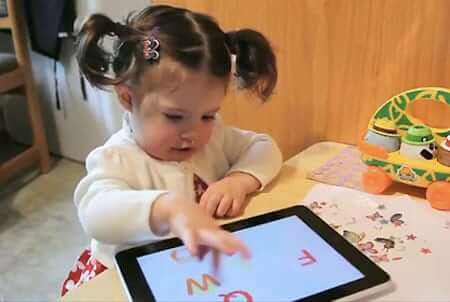All parents want their kids to grow in to happy, successful adults. What will she like to do? Will he be kind? Will she be a leader? As parents, we want to give our kids the best future possible. That doesn't mean we need to give them everything they want or spend a lot of money on vacations or activities. Here are 10 simple things that may have a big effect your child's life.
 A book
A book:
Most of us remember a favorite bedtime story, thrilling read or character that was there for us when no one else was. Books have a special place in our hearts. A child's favorite book can influence what they want to be when they grow up or where they want to live.
A child's engagement with books can effect his future in a broader way as well.
A study from the National Endowment for the Arts suggests poor reading skills tend to equate with lower pay, lack of or poor employment, and fewer chances for advancement. Poor readers are also less likely to be active in civic life, volunteer less, and vote less than better readers.
Reading really does make a lifetime of difference!
Doing the dishes:
Financial guru
Dave Ramsey says, "You should view teaching your children to work in the same way you view teaching them to bathe and brush their teeth — as a necessary skill for life."
Chores teach kids the relationship between work and success. It will also prepare them to take on and fulfill assignments for future employers. As a bonus, your child develops a sense of his place in a community as he contributes to the family's success.
A teacher:
Your child will have many teachers over the years, but sometimes he makes a special connection with one that will change his life. Whether by igniting a love of a particular subject or by helping a child through a hard time in life, a teacher can earn a special place in his student's mind and heart
A friend:
Some people are born family, and some earn the title. Sometimes friends can have just as much influence on your child as you do. The wrong friends can send your child on a downward spiral and the right ones can support and uplift him to greater success.
Time with Dad:
A study posted on
childwelfare.gov says, "Even from birth, children who have an involved father are more likely to be emotionally secure, be confident to explore their surroundings, and, as they grow older, have better social connections with peers. These children also are less likely to get in trouble at home, school, or in the neighborhood." Having an involved father was a better social indicator of future success than having money or social status. Enough said.
Music lessons:
Learning a musical instrument has numerous benefits for kids ranging from improving memory and mathematical abilities to creativity, self-expression and stress relief. If your child joins a band or orchestra it can improve his social skills and widen his peer group. Some budding musicians will even go on to music careers.
Your neighborhood:
Are you a little bit country? From the wrong side of the tracks? Totally suburban? Throughout their lives adults will identify themselves with their hometown, and neighborhood -- even after living away for years. Where you live affects your child's educational and recreational opportunities. Each place has its own culture that will influence your child's thoughts and ideas. The way you talk and how you feel about your neighborhood will also influence your child.
A puppy:
Having a pet has been shown to keep you healthier
both emotionally and physically. Pets can teach kids responsibility and compassion. A
study comparing children with dogs at home to those without, found that the children who were dog owners were significantly more empathic and pro-social. Pets can also provide a sense of security and reduce anxiety. For these reasons, animals are often used in therapy with children. The study also found that children with higher levels of attachment to pets reported more positive feelings about their family and home, than those with low attachment to pets.
Having a pet can teach your child to love more, be a better friend and have fonder memories of childhood.
A walk to the park:
The health benefits of exercise are two long to list. For kids, outside play is particularly important. Playing outside not only stimulates your child's imagination and promotes problem solving skills, it can help boost his immune system, give him needed Vitamin D and is a proven mood booster.
Besides the benefits of outside play, taking a walk with your kids provides beneficial bonding time for you and your kids. This is a great time to talk with your kids away from distractions. Some of your most meaningful, life changing conversations can happen on a walk.
A grandma:
Or, grandpa, aunt, uncle or cousin. Studies have shown that children with strong extended family ties tend to do better when faced with a problem. "The more children knew about their family's history, the stronger their sense of control over their lives, the higher their self-esteem and the more successfully they believed their families functioned," according to an
Emory University study. Extended families often provide care and support when a parent is unavailable, or in conflicts between parents and children.
It's not the trip to Disneyland, the new iPod or even the best schools that will make your child's future bright. It's often little things you can do that turn out to make a big difference.





